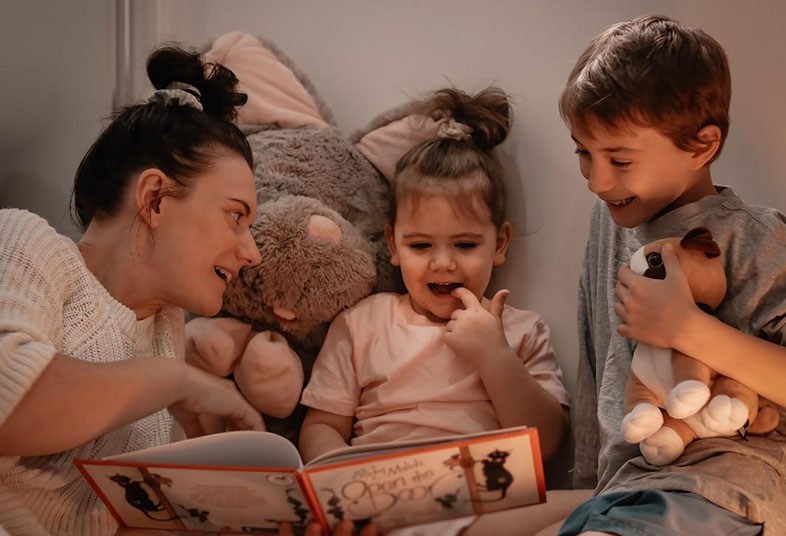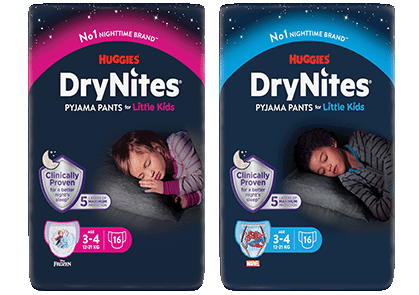Does bedwetting run in families? Is bedwetting genetic? If you have tried everything to help your child with night-time enuresis (bedwetting), you may start to wonder if there is another reason behind your child’s inability to stay wet at night. We explore the science behind whether enuresis is genetic.
Yes, bedwetting can run in families
When asking if wetting the bed is hereditary, much evidence is anecdotal, with families reporting that several family members have suffered from enuresis. However, there is one important study we can also look at for evidence.
In Denmark in 2021, a large study of children and young people was carried out into the common genetic variants that increase the incidence of enuresis and the results were published in the scientific journal, The Lancet Child & Adolescent Health.
The team at Aarhus University studied the genes of 3,900 Danish children who suffered from bedwetting and compared them to the genes of 31,000 children who did not.
Jane Hvarregaard Christensen, one of the study’s authors, said:
As many as 16 per cent of all seven-year-olds suffer from nocturnal enuresis and although many of them grow out of it, one to two per cent of all young adults still have this problem.
It is a serious condition, which can negatively affect children's self-esteem and well-being. For example, the children may be afraid of being bullied, and often opt out of events that involve overnight stays.
The results of the study were very interesting.
We identified two locations in the genome where specific genetic variants increase the risk of bedwetting.
The potential causal genes which we point to play roles in relation to ensuring that our brain develops the ability to keep urine production down at night, that the bladder's activity is regulated and registered, and that we sleep in an appropriate way, among other things.
Why bedwetting can run in families
Because we share genes with our closest family members, it is more likely that these genetic links with bedwetting will run in families.
However…
You can still also have all the variants without wetting the bed at night, because there are other risk factors in play that we haven't mapped yet - both genetic and environmental.
So, it's clear that this is very complex and that it's not possible to talk about a single gene that causes nocturnal enuresis.
The team also identified that children with genetic variants that increased the risk of having ADHD were also especially prone to bedwetting. While they don’t believe that one condition causes the other, the two may have common genetic causes.
Whether their bedwetting is genetic or not, it can be common
While they may have an underlying cause for their continued bedwetting, it is usually something that can be resolved, given time and patience.
It may just help to reassure you that the methods you are using to try to help your child are not ‘wrong’ or that your child does not ‘get’ how to stay dry at night. They may just need a little more time. If they are still wetting the bed at age five or older, then it’s time to speak to a doctor, as this is when it is considered a medical condition.
How to talk to your child about bedwetting if it is genetic
It's a good idea to talk to your bedwetting child’s siblings about their night time accidents, so that the whole family can get on board with helping your child stay dry at night.

This may involve explaining that your child is not being ‘bad’ or ‘naughty’ and that they need to have a lot of patience and understanding. Above all, it’s important your other children know that they need to be patient and understanding, not to tease and not to let others know about their sibling’s enuresis.
This can be especially helpful if you have more than one child who wets the bed, as your children can share their experiences and help each other.
If you or other adults in your family also wet the bed at night as children, it can really help your child if you share your experiences of bedwetting. It can help your child feel less alone and they will enjoy knowing that there are people around them who understand exactly what’s going on.

Help your child go to sleep worry-free, and wake up feeling great
Using DryNites® Pyjama Pants at night is a great way to support your child and try to ensure they get a good night’s sleep. This can make all the difference to the whole family, as the lack of sleep caused by having to change your child and their bedding in the middle of the night can make everyone feel low and grumpy.
Remember: for many children, bedwetting is all a part of growing up. Whether bedwetting runs in your family, or not, there are plenty of ways that you can help and support your child.



 your parenting partner
your parenting partner